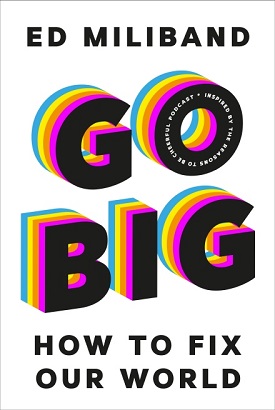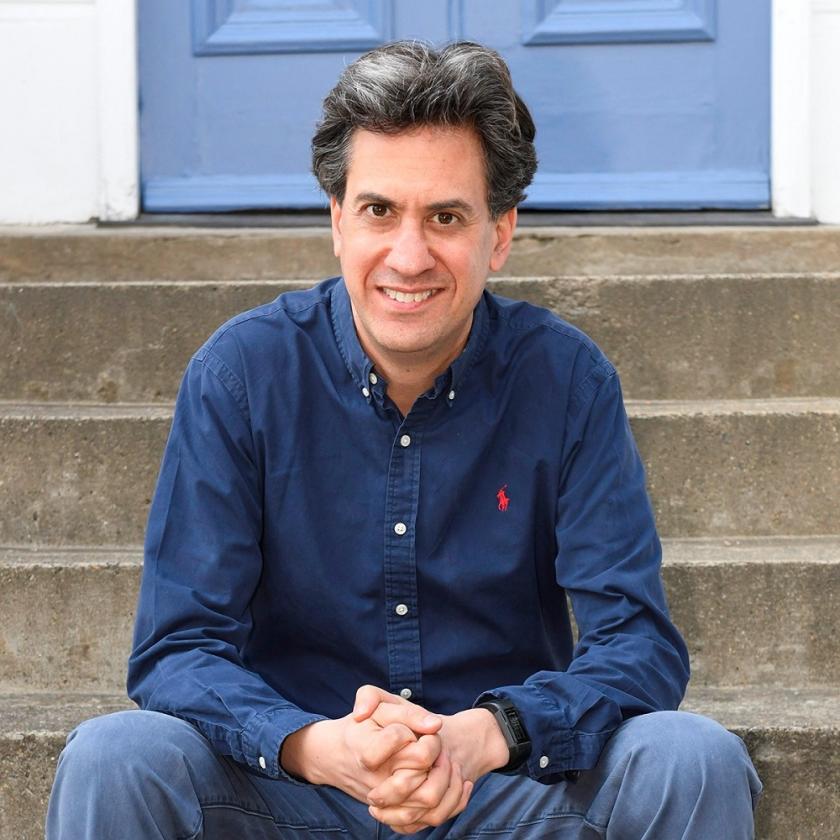Almost alone among my friends, I liked and admired Ed Miliband, renewing my on-off relationship with the Labour Party having watched his first speech to conference live on TV. I had always considered him decent, thoughtful, intelligent – and, on the couple of occasions I met him, personable and (dare I say it) attractive. But the media decided long before the bacon sandwich incident that he was a nerdy no-good and the view widely prevails that “the wrong Miliband” got the gig – that David would have been electable in 2015 and therefore saved us from even more unnecessary austerity and the calamity of Brexit.
Maybe they’re right – a friend who worked with the elder brother during his two years as an education minister had always found him impressive and never forgave the fratricide. Others never forgave David his support of the Iraq war or his complicity in the events that followed which many believed made him unelectable. We will never know, but we do now know that Miliband the Elder is making a fortune in New York running International Rescue Committee which doesn’t pay its interns, while Miliband the Younger has remained at the coalface of British politics since he ceded the leadership to Jeremy Corbyn, representing Doncaster North and returning to the front bench under Keir Starmer as Shadow Secretary of State for Business, Energy and Industrial Strategy.
He has since reflected that his 2015 manifesto was insufficiently radical, but he was right on many things, correctly identifying “the squeezed middle” and “a crisis in living standards that has now become a crisis of confidence for middle-class families”. Among other policies, he advocated a freeze on energy prices and controls on rent and executive salaries. And long before Nick Clegg accepted Zuckerberg’s 30 million pieces of silver, Miliband was quick to spot his untrustworthiness – a judgment few would now disagree with. As for David Cameron’s alleged competence and probity, Greensill put paid to what remained of that.
Since he stepped down, Miliband has watched as the Tories stole many of “Red Ed’s” policies: Theresa May talked of the “just about managing”, while more recently Rishi Sunak has raised corporation tax, proposed a national infrastructure bank and is using tax to incentivise corporate investment. Maybe they’ve all been listening to his Reasons to Be Cheerful podcasts – and now they can riffle through Go Big and nick Miliband’s ideas on “how to fix our world”.
 There’s a lot that needs fixing, and the darkness and dislocation of the past 16 months has thrown it into sharp relief. It’s useful to remember that Miliband did not enter Parliament till 2005, after 13 years in a number of advisory positions during which time he took a year’s unpaid leave to attend Harvard as a Visiting Scholar, teaching economics. His time in the US opened up new vistas and new contacts, evident in Go Big. The book ranges widely, effectively 20 essays arranged thematically and each with prefatory remarks: "A New Social Contract", "Life Beyond the Market", "Take Back Control" and "Changemakers", the latter examining such cases as the 2012 strike by New York City fast-food workers protesting at the $7.25 per hour non-living wage, the West Virginia origins of the fossil fuel boycott, and, closer to home, Preston Council’s successful shift to “community wealth building” by pursuing a policy of local procurement, working with local public sector organisations. It has been remarkably successful: across Lancashire, £200m has been put back into the local economy.
There’s a lot that needs fixing, and the darkness and dislocation of the past 16 months has thrown it into sharp relief. It’s useful to remember that Miliband did not enter Parliament till 2005, after 13 years in a number of advisory positions during which time he took a year’s unpaid leave to attend Harvard as a Visiting Scholar, teaching economics. His time in the US opened up new vistas and new contacts, evident in Go Big. The book ranges widely, effectively 20 essays arranged thematically and each with prefatory remarks: "A New Social Contract", "Life Beyond the Market", "Take Back Control" and "Changemakers", the latter examining such cases as the 2012 strike by New York City fast-food workers protesting at the $7.25 per hour non-living wage, the West Virginia origins of the fossil fuel boycott, and, closer to home, Preston Council’s successful shift to “community wealth building” by pursuing a policy of local procurement, working with local public sector organisations. It has been remarkably successful: across Lancashire, £200m has been put back into the local economy.
Go Big’s origins lie in Miliband’s podcast series, a post-2015 challenge that’s allowed academics and activists, campaigners, and politicians of all stripes to share their insights on all manner of subjects with the wider public. He was sceptical when the idea was suggested but the bite-sized approach has worked, and the aim of the book is “to paint a wider picture of the kind of society we need” and an in-depth analysis of how it might be brought into being.
It’s an easy enough read but those seeking to go deep can follow almost 50 pages of notes and references. Miliband ranges widely, geographically beyond Britain and America to Iceland and Northern Europe and beyond, and issues include parental leave, education and child care and, that most intractable of problems, social care. The thinking is refreshingly joined-up, and we are invited to look at each topic in its proper context – locally, nationally, internationally.
The heart lifts at the essay on GDP, “That Which Makes Life Worthwhile”, which begins with a long prefatory quote from Robert Kennedy, three months before his assassination: “Gross national product counts air pollution and cigarette advertising, and ambulances to clear our highways of carnage… special locks for our doors and the jails for people who break them… the destruction of the redwood and the loss of our natural wonder in chaotic sprawl… napalm and… nuclear warheads and armoured cars for the police to fight the riots in our cities… Yet the gross national product does not allow for the health of our children, the quality of their education or the joy of their play….” Indeed, it measures everything “except that which makes life worthwhile”.
Little has changed and Miliband argues that “our chief measure of success is out of step with our values… GDP is the poster child for ‘the market is king’ philosophy’” – a “cult” which damages society, telling us nothing about who benefits from economic growth. Closing libraries and forcing people to buy books boosts GDP, while installing free water fountains so people no longer need to buy single-use plastic bottles of water damages it, along with the environment. Unpaid care work in the UK is valued at £1.2 trillion, “equivalent to more than 60 per cent of what is measured by GDP, and yet it is left out.” Parenting, teaching, social care – all are undervalued, and while we clapped for “key workers” it is clear that “as a society that is not the way we operated”. Much of it is work done by women, which has never been much valued – Miliband points out that Adam Smith was able to write The Wealth of Nations because he lived at home, though he didn't thank his mother!
Both the IMF and the OECD have now acknowledged that income inequality is the result of the weakening of unions, the latter concluding: “Growing inequality is harmful for long-term economic growth… the key driver is the growing gap between lower-income households… and the rest of the population.”
Go Big is an inspiring book, a call to action at a moment in time that demands “raising the scale of our ambition for what politics can achieve”. My one criticism is that it doesn’t include an action plan for the arts, for which Britain has long needed a Rooseveltian new deal. If only Britain had voted differently in 2015. It's now very clear who's "weak and despicable".
Go Big: How To Fix Our World (Bodley Head, £18.99)















Add comment